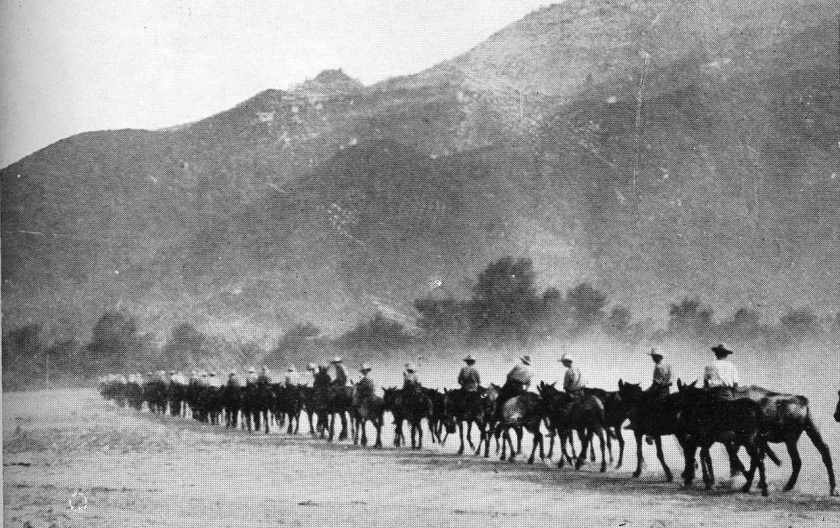Anglo-French forces began landing at the Greek port of Salonika on 5 October 1915. The troops were sent to provide military assistance to the Serbs who had recently been attacked by combined German, Austro-Hungarian and Bulgarian armies. The intervention came too late to save Serbia and, after a brief winter campaign in severe weather conditions on the Serbian frontier, the Anglo-French forces found themselves back at Salonika. At this point the British advised that the troops be withdrawn. However, the French – with Russian, Italian and Serbian backing – still believed something of strategic importance could be gained in the Balkans.
After preparing the port of Salonika for defence, the troops moved up country. During 1916, further Allied contingents of Serbian, Italian and Russian troops arrived and offensive operations began. These culminated in the fall of Monastir to Franco-Serb forces during November. A second offensive during the spring of 1917, the British part of which was the First Battle of Doiran (24-25 April and 8-9 May), made little impression on the Bulgarian defences. The front line remained more or less static until September 1918, when a third offensive was launched. During this the British attacked at Doiran for a second time (18-19 September). With a breakthrough by Serbian forces west of the river Vardar the Bulgarian army was forced into a general retreat. The campaign concluded with the surrender of Bulgaria on 30 September 1918.
Malaria proved to be a serious drain on manpower during the campaign. In total the British forces suffered 162,517 cases of the disease and in total 505,024 non-battle casualties. With the campaign being a low priority for the War Office the assistance rendered by voluntary medical organisations, such as the Scottish Women’s Hospitals, proved invaluable.
Find out more:
- Away from the Western Front: Salonika (film)
- WFA talk: ‘Mules, Mountains and Malaria’ by Alan Wakefield (film)
- Imperial War Museum: A Short History of the Salonika Campaign
- National Army Museum: Salonika Campaign
- BBC Radio 4 podcast: Voices of the First World War – Salonika


